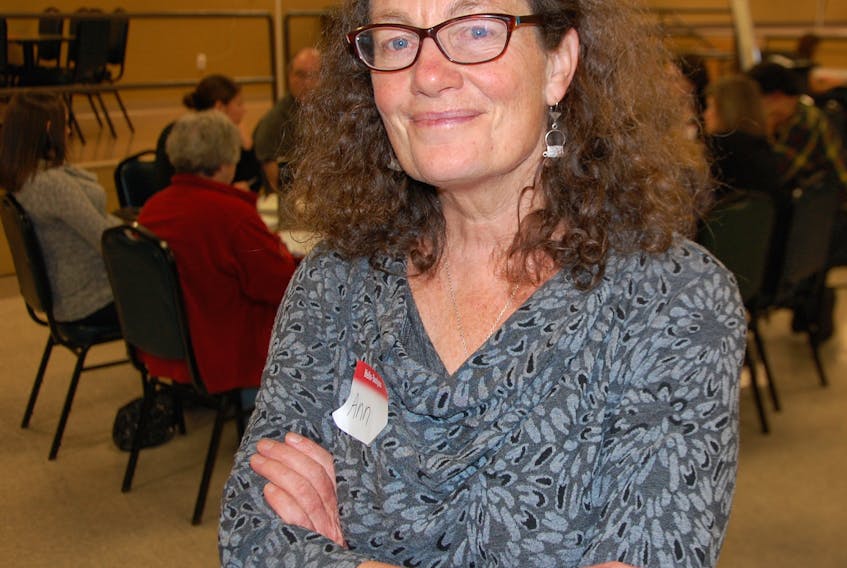BY ANN WHEATLEY
GUEST OPINION
Piecing together a plan to solve a problem as huge and as pervasive as poverty is surely no easy feat. The provincial government should be commended for, after years of false starts, having finally come up with a Poverty Reduction Action Plan, and for having based that plan on a really good public consultation process.
Which is important, because it gave members of the community - people affected by poverty, advocates and service providers - a chance to participate, increasing the probability that the plan would address a full range of issues in appropriate ways. And most importantly, because it’s true that people most affected by any situation are in the best position to imagine how that situation might be improved.
RELATED: Poverty reduction on P.E.I. still too little, says advocate
From the beginning, the Working Group for a Livable Income has been concerned about the lack of clarity regarding the goal of the plan. A plan to reduce poverty, in our view, was never ambitious enough, and reflected a commonly-held, unhelpful belief that poverty will always be with us.
So, we were not surprised, but disappointed nonetheless to see the vision of the plan (and of the P.E.I. Government) described as to help Islanders in need, a statement that seems to be more about charity than addressing root causes.
That goal does not seem to match up with one of the guiding principles of the plan, which is to “address the interrelated root causes of poverty, to overcome poverty today and prevent poverty tomorrow.” What a great sentiment; and such a shame that it isn’t supported by the rest of the plan!
We strongly believe that the vision of the plan should be a province in which every person has a livable income and is able to participate and contribute to their community on an equal basis, with dignity.
The plan acknowledges the goal of the federal poverty reduction strategy which aims for a 50 per cent reduction in poverty by the year 2020. This is actually a rather astounding target which commits the government to a goal of doing nothing for 50 per cent of people who are currently living in poverty.
It’s no wonder, given the rather weak vision and goal, that P.E.I.’s plan offers no possibility for transformational change. Rather, it contains a set of discreet actions that, while they will undoubtedly make a difference in the lives of people living on low incomes, will not, even when they are added up, ensure that poverty is addressed in a substantive, sustainable way.
While the plan describes a few targets – for raising Social Assistance food and shelter rates, and minimum wage – they are short-term and woefully inadequate. People working for minimum wage will still be living in poverty. P.E.I.’s minimum wage will continue to act as an anchor for other wages, meaning that many other low-waged workers will be affected. Individuals and families supported by Social Assistance will remain food insecure, and they will still be forced to live in substandard, sometimes unsafe and unhealthy places.
The P.E.I. Working Group for a Livable Income would like to acknowledge the commitment and the countless hours that members of the Poverty Reduction Advisory Council contributed to the process. Their participation (and that of the community during the consultation process) resulted in the inclusion in the plan of many solid, positive actions that will undoubtedly make a difference at least in the short term, to many people living in this province.
We welcome the promise of a comprehensive review of P.E.I.’s Employment Standards Act – this is something that will have a positive impact on all un-unionized working people, and it is long overdue. We are also happy to see there will be a Minister who will be responsible for the community sector, given the importance of this sector not just in providing programming and services, but in advocating for progressive social, economic and environmental change.
Finally, the idea of an anti-poverty law is exciting, and a reason for hope. But unless we move from poverty reduction to poverty elimination as a goal, we’ll be legislating half-way measures to make things better for only a portion of our population. We can do better than this.
- Ann Wheatley is a member of the P.E.I. Working Group for a Livable Income








